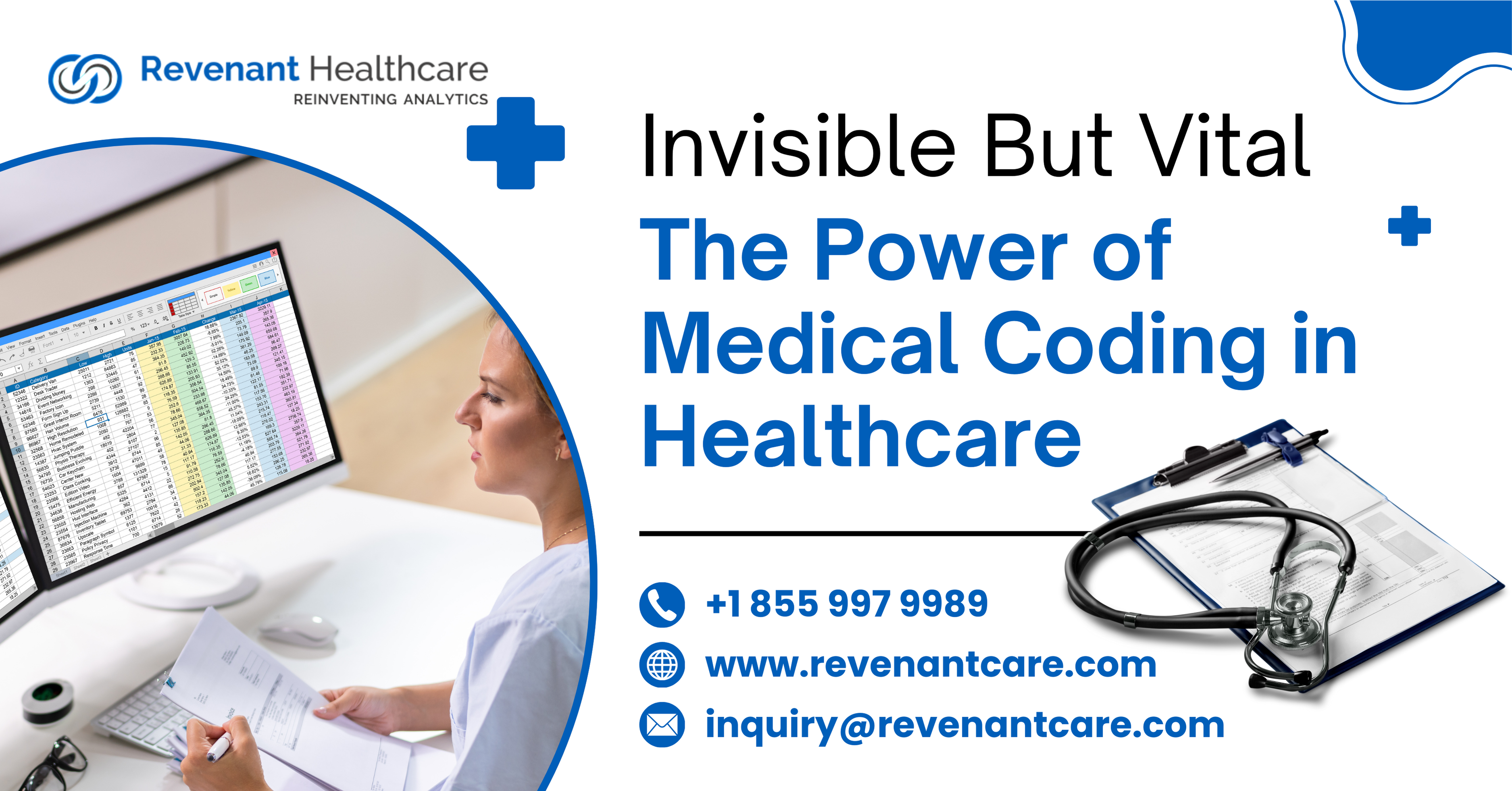
Imagine you walk into your doctor’s office, explain your symptoms, receive treatment, and leave with a prescription. In that moment, the focus is on your care, health, and well-being. But hidden in the background, there’s something essential happening that you may never even think about. What if I told you that every prescription, every test, every procedure, and every diagnosis comes with a series of codes? This is called medical coding. The invisible force helps ensure insurance companies translate your doctor’s notes into the correct language. Through this, the bills are processed efficiently, and your care is accurately documented.
Hospitals often hire medical coding services to ensure accurate billing, proper insurance claims processing, and compliance with regulations. Without it, healthcare would simply not function. And yet, most of us are unaware of its decisive role in our lives. This blog’ll dive deep into medical coding, its importance, and how it impacts your medical experience.
What is Medical Coding?
It is the process of translating health diagnoses, procedures, services, and equipment into universal alphanumeric codes. Healthcare providers and insurance companies use these codes to facilitate claims processing, billing, and reimbursement. Without them, misunderstandings, billing errors, and a lack of clear communication would occur.
Why is it So Important?
1. Accurate Billing and Reimbursement
Healthcare providers depend on these codes to guarantee accurate reimbursement for their services. Without it, a hospital or clinic could overcharge or undercharge a patient, or the services might not be refunded. Medical coders ensure that healthcare facilities receive the proper payments. They can continue to operate and provide care.
2. Streamlining Communication
It acts as a language that allows everyone to communicate more effectively. Doctors and nurses speak medical terminology, but coders translate that into a common language. Insurance companies and billing departments can easily understand it. This reduces the chances of confusion and misinterpretations.
3. Insurance Claims
When you visit a doctor or undergo a medical procedure, the insurance company must know exactly what was done to determine what they will cover. This information is critical for insurance companies to process claims quickly and accurately. They help insurers understand precisely what services were provided. They also ensure that claims are approved and processed without delays.
4. Improved Patient Care
It serves as a foundation for improving healthcare on a broader scale. Coded data is invaluable for conducting medical research, as it allows researchers to identify patterns, track disease outbreaks, and assess the effectiveness of various treatments. This data can reveal patient care trends, highlighting areas where improvements are needed. This process improves patient safety and delivers more effective care.
How Does Medical Coding Work?
Here’s how the process works:
- Diagnosis and Procedure: After seeing the patient, the doctors will note the diagnosis, treatment, and any procedures performed. These are then translated into codes based on the coding guidelines.
- Code Assignment: Coders use specialized software or coding books to assign the correct ICD and CPT codes to the services provided.
- Submission to Insurance: The medical staff submits the information to the insurance company once assigned. The facility may choose to do this electronically or through paper forms.
- Processing and Reimbursement: It will determine the reimbursement amount for the healthcare provider. They may send the claim back for clarification if there are any issues.
- Patient Invoicing: In cases where a patient has to pay a portion of the bill, the coded information is used to generate an invoice for the patient, which outlines the costs of their treatment.
The Growing Demand for Medical Coders
As this industry expands, the demand for skilled coders is experiencing significant growth. According to the U.S. Bureau of Labor Statistics, this field is projected to grow 8% from 2020 to 2030, faster than the average growth rate for most occupations.
- The aging population and higher demand for healthcare services drive the need for more medical coders.
- As more hospitals, clinics, and specialized practices open, the demand increases to handle billing, coding, and insurance claims.
- The transition to digital records requires skilled coders to ensure data accuracy and compliance with regulations.
- Growing healthcare compliance regulations mean that avoiding penalties and ensuring proper reimbursement is essential.
- As telehealth services rise, new standards are needed to process virtual consultations and remote care.
- This sector is recession-proof, offering long-term career security for skilled professionals.
- Remote opportunities are on the rise, allowing them to work from home or choose flexible hours.
- It offers a competitive salary with opportunities for career advancement through certifications and specialization.
The Unsung Impact of Medical Coding on Healthcare!
Medical coding is a behind-the-scenes task. It ensures the smooth operation of the healthcare industry. From accurate billing and reimbursement to supporting research and improving patient care, this process is essential to maintaining efficiency, accuracy, and sustainability.
As one of the leading providers of the best medical coding services in New York, Revenant Care offers expert solutions tailored to meet the needs of healthcare providers. With a team of highly trained and certified coders, we ensure that all codes are assigned accurately, helping you stay compliant, minimize errors, and maximize reimbursement.
Contact Revenant Care to handle your medical coding needs so you can focus on caring for your patients!